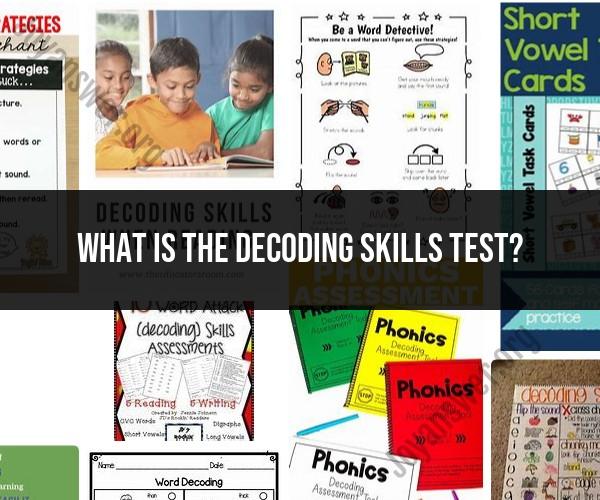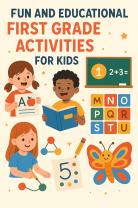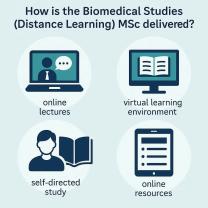What is the decoding skills test?
A decoding skills test is an assessment used to evaluate an individual's proficiency in decoding written language, particularly in the context of reading. Decoding is the ability to translate printed words into spoken language and understand their meaning. This skill is a fundamental component of reading and is crucial for comprehending written text. Decoding skills are typically assessed to determine a person's reading level and identify any potential reading difficulties or learning challenges.
A decoding skills test may involve various tasks and exercises, including:
Word Recognition: This assesses an individual's ability to recognize and pronounce individual words accurately. It may involve presenting a list of words for the person to read aloud.
Phonemic Awareness: This examines the person's understanding of the relationship between sounds and letters. It may include tasks like identifying the initial sound in a word or blending sounds together to form a word.
Word Attack Skills: These are tasks that assess a person's ability to apply phonetic rules and strategies to decode unfamiliar words, especially when they encounter words they haven't seen before.
Reading Fluency: This evaluates how smoothly and quickly an individual can read a passage of text. Fluent readers can decode words quickly and accurately.
Comprehension Skills: While decoding skills primarily focus on word recognition, reading comprehension is also important. Some tests may include questions or exercises that assess an individual's ability to understand the meaning of the text they've read.
Timed Reading: Some decoding skills tests may include timed reading exercises to assess how quickly a person can read a passage while maintaining accuracy.
These tests are commonly used in educational settings, especially in early literacy assessments, to identify students who may be struggling with reading and may benefit from additional support or intervention. The results of a decoding skills test can help educators tailor their instruction to meet the specific needs of each student. Additionally, decoding skills assessments are used in the diagnosis of reading disorders, such as dyslexia, which can affect a person's ability to decode words accurately and efficiently.
Decoding Skills Test: Assessing Reading Proficiency
The Decoding Skills Test (DST) is a diagnostic assessment tool that is used to measure students' decoding skills. It is a standardized test that can be administered to students in kindergarten through fifth grade. The DST is designed to assess students' ability to decode words of varying difficulty, including words with regular and irregular spellings, as well as multisyllabic words.
The DST is administered individually and takes approximately 15-20 minutes to complete. The test consists of two parts:
- Part 1: Word Reading: Students are asked to read aloud a list of words of varying difficulty.
- Part 2: Nonword Reading: Students are asked to read aloud a list of nonsense words.
The DST is scored by examining the student's accuracy and fluency in reading the words and nonwords. The results of the DST can be used to identify students who are struggling with decoding and to develop targeted intervention plans.
Reading Proficiency Evaluation: Understanding the Decoding Skills Test
The DST is a valuable tool for assessing students' reading proficiency. It can be used to:
- Identify students who are struggling with decoding
- Determine the specific areas of decoding where students need support
- Monitor students' progress over time
- Evaluate the effectiveness of intervention programs
The DST is a reliable and valid assessment tool that is used by educators and researchers throughout the United States. It is a valuable tool for ensuring that all students have the opportunity to develop the decoding skills they need to become successful readers.
Literacy Assessment: The Decoding Skills Test Explained
The DST is one of a number of different literacy assessments that can be used to measure students' reading skills. Other literacy assessments include:
- Phonological awareness assessments: These assessments measure students' awareness of the sounds in speech.
- Word recognition assessments: These assessments measure students' ability to recognize words in print.
- Reading fluency assessments: These assessments measure students' speed and accuracy in reading text.
- Reading comprehension assessments: These assessments measure students' ability to understand what they read.
The DST is a specific type of literacy assessment that is designed to measure students' decoding skills. Decoding is the process of converting letters into sounds in order to read words. Decoding skills are essential for reading fluency and comprehension.
The DST is a valuable tool for educators and researchers who are interested in assessing students' reading skills. It can be used to identify students who are struggling with decoding and to develop targeted intervention plans.











